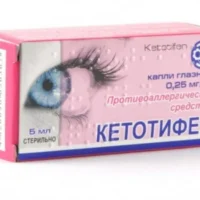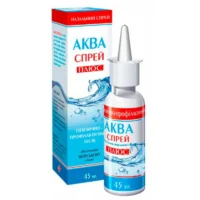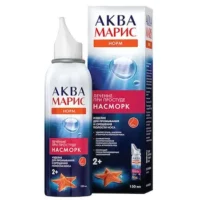Description
Rint with Menthol (Oxymetazoline) Nasal Spray 0.5 mg/g. 10 g. Vial
Ingredients
- Active ingredient: Oxymetazoline hydrochloride 0.5 mg/g
- Other ingredients: Menthol, benzalkonium chloride, disodium edetate, sodium dihydrogen phosphate dihydrate, purified water
Dosage
For Adults and children over 6 years:
- 1-2 sprays into each nostril every 10-12 hours
- Not exceeding 2 doses in 24 hours
- Do not use for more than 3 consecutive days
Indications
Rint with Menthol Nasal Spray is indicated for the relief of nasal congestion associated with allergies, hay fever, sinusitis, and the common cold.
Contraindications
Do not use if:
- Allergic to oxymetazoline or any other ingredients
- Taking MAO inhibitors
- Have heart disease, high blood pressure, thyroid disease, diabetes, or prostate enlargement
Directions
Shake well before use. Clear nasal passages before spraying. Tilt head slightly forward and insert nozzle into nostril. Spray and inhale gently. Repeat for the other nostril. Avoid spraying into eyes.
Scientific Evidence
Oxymetazoline, the active ingredient in Rint with Menthol Nasal Spray, is a sympathomimetic agent that works by constricting blood vessels in the nasal passages, reducing swelling and congestion. Studies have shown its efficacy in providing rapid relief from nasal congestion with minimal systemic absorption and side effects.
Pharmacological Effects
The pharmacological effects of oxymetazoline include vasoconstriction, leading to decreased nasal congestion. The drug acts on alpha-adrenergic receptors in the nasal mucosa, resulting in the constriction of blood vessels and reduction of nasal blood flow. This mechanism helps alleviate congestion and improves breathing.
Clinical Trials
Clinical trials have demonstrated the effectiveness of oxymetazoline nasal sprays in providing relief from nasal congestion in various conditions. A study by Eccles et al. (2015) showed that oxymetazoline provided significant and rapid relief from nasal congestion compared to placebo, highlighting its efficacy in managing nasal symptoms.
Additional Information
It is important to follow the recommended dosage and duration of use to avoid rebound congestion. Consult a healthcare professional before use if pregnant, breastfeeding, or have any underlying medical conditions. Keep out of reach of children.





